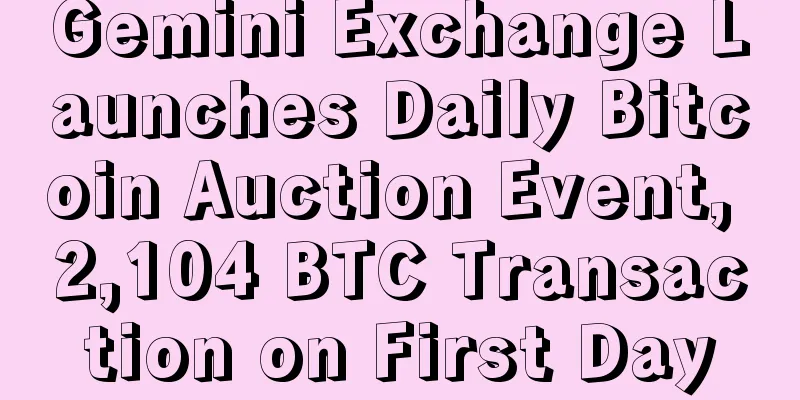Top secret? SegWit2x leaves more questions than it solves?

|
After years of debate, the SegWit2x scaling proposal looks set to help Bitcoin take a significant step forward. But the coders and companies involved in SegWit2x appear to have been working behind closed doors, leading some to argue that this approach goes against Bitcoin’s value proposition as a decentralized currency that no one person or group can control. This project and a host of other proposals are aimed at improving the transaction capacity of the Bitcoin network. However, only this proposal has currently received the highest support ever from nearly 90% of the total network computing power. Given that the current way of triggering large code changes relies on mining pool support, it looks like the first part of the SegWit2x proposal, SegWit, will be activated by the end of July. (Though it’s still hard to say what will happen with the rest of SegWit2x, the 2MB hard fork.) But while SegWit2x may be the most popular proposal among businesses and mining pools in the years-long scaling debate, some believe key decisions about the proposal are being made by a closed group of businesses. Some believe that these companies are pushing for SegWit to pass even though some of the developers most familiar with the bitcoin code find flaws in the implementation and disagree with the goals of the proposal. And the companies have been evasive when it comes to progress on the proposal. By invitation onlyThe SegWit2x proposal was agreed upon at an invitation-only meeting that included some of the largest bitcoin companies and large mining pools. From the beginning, one of the criticisms of SegWit2x was that its development process was not open to everyone, which many people believed was inconsistent with Bitcoin's history of open source development. However, this argument is obviously untenable. Because the software implementation of SegWit2x, Btc1, is hosted on Github, any developer can point out bugs and make suggestions for improvements. This open process has indeed brought significant changes to the direction of the project. Similarly, the SegWit2x mailing list is also open to everyone in the community. However, there is also an invite-only Slack group that includes the companies that initially pushed for SegWit2x, including Abra, BitFury, BitGo, Bitpay, Blockchain, Bloq, BTCC, Ledger, RSK Labs, and Xapo. Others include OB1, Purse and developers from alternative bitcoin implementation Bitcoin XT. Most of these companies have pledged to contribute developer resources, though they declined to provide details about their involvement. Some simply did not respond. Other companies confirmed their involvement in the development process but declined to provide specific information about developer involvement and ongoing research. Who was involved and what did they do?BitFury CEO Valery Vavilov said:
However, Vavilov continued:
Companies are currently testing their code on the newly deployed test network, and last Wednesday the team released a public test network plug-in for generating fake bitcoins for developers to use. Many developers have already joined the SegWit2x development, which can be seen through Github and the SegWit2x project mailing list. These two resources make it easy to see that some people have joined the development work, including Bloq CEO Jeff Garzik and Purse.io CTO Christopher Jeffrey. Although Digital Currency Group (DCG) CEO Barry Silbert is often cited as the face and key figure behind SegWit2x (also known as the “Silbert Protocol”), he noted that he is “not involved in the development of SegWit2x” so I cannot comment beyond what has been announced. Despite some awareness of development progress, the community has varying degrees of knowledge about what development is currently taking place, such as who specifically contributes to the development and what they contribute. Missing peer review?According to Lighting Labs CEO Elizabeth Stark, bitcoin developers who are not contributing to SegWit2x are in a sense the ones who disagree with the proposal. Stark said her company provided technical feedback for SegWit2x because they disagreed with the proposal for “various technical reasons.” According to Stark, they were not invited to participate. Referring to Bitcoin Core developers, she said, “There is very little consensus on this proposal.” She also said:
Opponents say the philosophy is at odds with bitcoin’s open-source development process, which invites all developers to contribute to its ideas. On the other hand, Blockstream CEO Adam Back said in an email to the working group that SegWit2x’s closed development approach “allows people to defend themselves, shielding them from peer review and public comment.” He also said:
However, no matter how controversial SegWit2x is, the implementation of this solution is unstoppable. We hope that SegWit2x can end the expansion debate that has lasted for several years and caused division in the community. |
<<: Coin Zone Trends: This Week’s Big Data on Ethereum Price Trends (2017-06-26)
Recommend
What does a mole under the left ear mean?
A mole on the ear is a good omen in mole physiogn...
Lip shape and lip color can tell your success and wealth
Lip shape and lip color can tell your success and...
Regarding the mining machine downtime, maybe you have a misunderstanding
On November 25, Bitcoin dropped to a low of $6,51...
How does a woman look without earlobes? Will piercing the earlobes cause financial loss?
The appearance of the ears is also a way to predic...
What facial features show that you have been wronged?
What facial features show that you have been wron...
How to identify the characteristics of rich people's palms
Everyone wants to be rich, but not everyone is de...
What does a mole on the back of a girl's head mean? Is it good for a woman to have a mole on the back of her head?
Everyone has moles. Some moles grow in obvious pl...
How is the fortune of a woman with a mole crying for her husband? A detailed explanation of the mole crying for her husband
Women with the mole of crying husband under the s...
A look at the current status of Ethereum L2 series
Review of the past year It’s been over a year sin...
What does a mole on the ear mean?
Everyone has moles on their body, and moles in di...
How to tell the gender of the baby by palmistry
Although it doesn’t matter whether a boy or a gir...
IPFS Official @ You | 99th Weekly Report
IPFS Weekly 99 99th Statement: The article conten...
What kind of woman can bring prosperity to her husband? How does a woman with wealth look like?
Men all hope that their women can have good luck ...
When Egyptian cotton meets blockchain
Rage Review : Indian textile manufacturer Welspun...
Face reading tells you which people have poor earning ability and are destined to be difficult to become successful
Money is very important to each of us in life, an...









